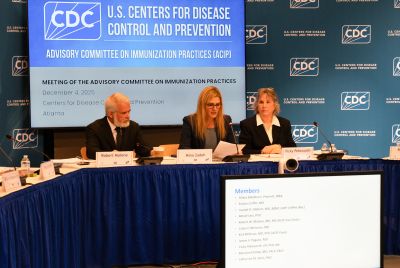75,000 Cases Of Eye Care Product Recalled Due To Reports Of Severe Allergic Reactions - Did You Buy This Brand?
These products were shipped between 26 May 2023 and 21 April 2025.

A nationwide recall of over 75,000 cases of eye care products, including artificial tears and ophthalmic gels, was announced on 13 May 2025, following reports of severe allergic reactions linked to potential contamination.
The recall, initiated by AvKARE and prompted by an FDA audit, affects products sold across the US, raising concerns for millions with dry or itchy eyes.
Consumers are urged to check their medicine cabinets and act swiftly to avoid health risks.
A Massive Recall Sparks Alarm
The recall targets three AvKARE eye care products:
- Artificial Tears Ophthalmic Solution (NDC# 50268-043-15)
- Carboxymethylcellulose Sodium Ophthalmic Gel 1% (NDC# 50268-066-15)
- Carboxymethylcellulose Sodium Ophthalmic Solution (NDC# 50268-068-15)
These products were shipped between 26 May 2023 and 21 April 2025.
An FDA audit at BRS Analytical Service, the testing lab for these products, uncovered 'lack of assurance of sterility,' prompting the recall, per NBC News on 13 May 2025.
'Consumers reported severe allergic reactions, including swelling and burning,' an FDA spokesperson told NBC News, highlighting the urgency of the situation.
The affected products, used to relieve dry or irritated eyes, were distributed nationwide through pharmacies and retailers. X posts, 10 May 2025, amplified warnings, urging users to 'AvKare recently announced that a voluntary drug recall.'
The recall follows a pattern of eye care product issues, with 2023–2024 recalls linked to bacterial and fungal contamination causing infections, vision loss, and four deaths, per CBS News.
Health Risks and What to Do
The potential contamination in AvKARE's products poses risks of eye infections or allergic reactions, particularly for those with allergies or compromised immune systems. Symptoms include swelling, burning, redness, or discharge.
Consumers should immediately stop using the listed products and complete AvKARE's Recall Form, available online, to receive a Return Authorization Form. Returns, marked 'Ophthalmic RECALL,' qualify for full credit, including shipping costs.
'Using a warm compress for 30 seconds daily helps with dry eyes,' a board-certified ophthalmologist advised NBC News on 13 May 2025, suggesting non-drug solutions like humidifiers for added relief.
A Wake-Up Call for Eye Care Safety
The recall underscores ongoing challenges in eye care product safety, with the FDA tightening oversight after recent contamination scandals. AvKARE's products, priced at £7.80–£15.60 ($10.38–$20.76), are affordable but now raise trust issues, especially as 2023 recalls linked to Pseudomonas aeruginosa caused severe harm.
X sentiment reflects consumer frustration, demanding 'stricter FDA checks.' With millions relying on eye drops for allergies or glaucoma, the industry faces pressure to ensure sterility.
Consumers must remain vigilant, meticulously checking NDC numbers on eye care products and promptly discarding recalled AvKARE items to avoid risks like infections or severe allergic reactions.
The FDA's ongoing investigation into potential contamination at the testing lab underscores the urgency of ensuring product safety. With millions relying on eye drops for conditions like allergies or glaucoma, trust in manufacturers is faltering amid repeated recalls.
The industry faces mounting pressure to enhance sterility standards and prevent future lapses. Can manufacturers rebuild confidence in eye care products, or will recalls continue to erode consumer faith?
Acting swiftly to verify and dispose of affected drops with immediate effect, purchased between May 2023 and April 2025, could prevent serious harm.
Consumers should consult pharmacists for guidance on safe replacements.
© Copyright IBTimes 2025. All rights reserved.





















